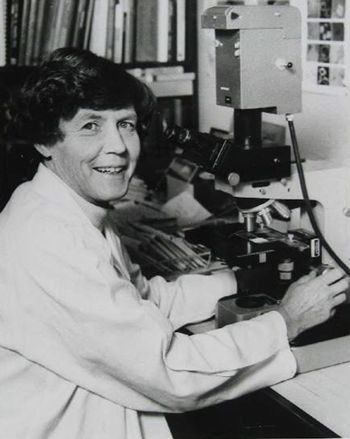Providing evidence of the link between compound analgesics and kidney disease that led to the ban of these painkillers.
Establishing a link between compound analgesics — such as Bex powder and Vincent’s powder — and kidney disease in the early 1960s. This was the second most prevalent cause of end-stage renal failure in Australia at this time and affected women the most, as these painkillers were predominantly marketed towards women. It became recognised that these combination medications were addictive, and that the large doses of phenacetin ingested by habitual users were responsible for widespread kidney disease.
South African-born Professor Priscilla Kincaid-Smith worked at the Baker Institute as a Senior Research Fellow in 1959 and 1960 where she began looking at analgesic nephropathy. She says it was during her studies on hypertension and anti-hypertensive drugs and when she visited patients from the hypertension clinic in The Alfred hospital that she started to recognise some of the patients with analgesic nephropathy and the association with Bex and other analgesics.
Professor Kincaid Smith went on to work at the University of Melbourne and to lead the Nephrology Department at the Royal Melbourne Hospital for almost 25 years. She would spend years working on recognising and characterising the epidemic, defining the nature of the disease, conducting experimental studies, and lobbying for changes in the formulation and restrictions on the availability of compound analgesics. This work played a significant role in bringing about policy change, and by 1977, these analgesics were banned in Australia.


